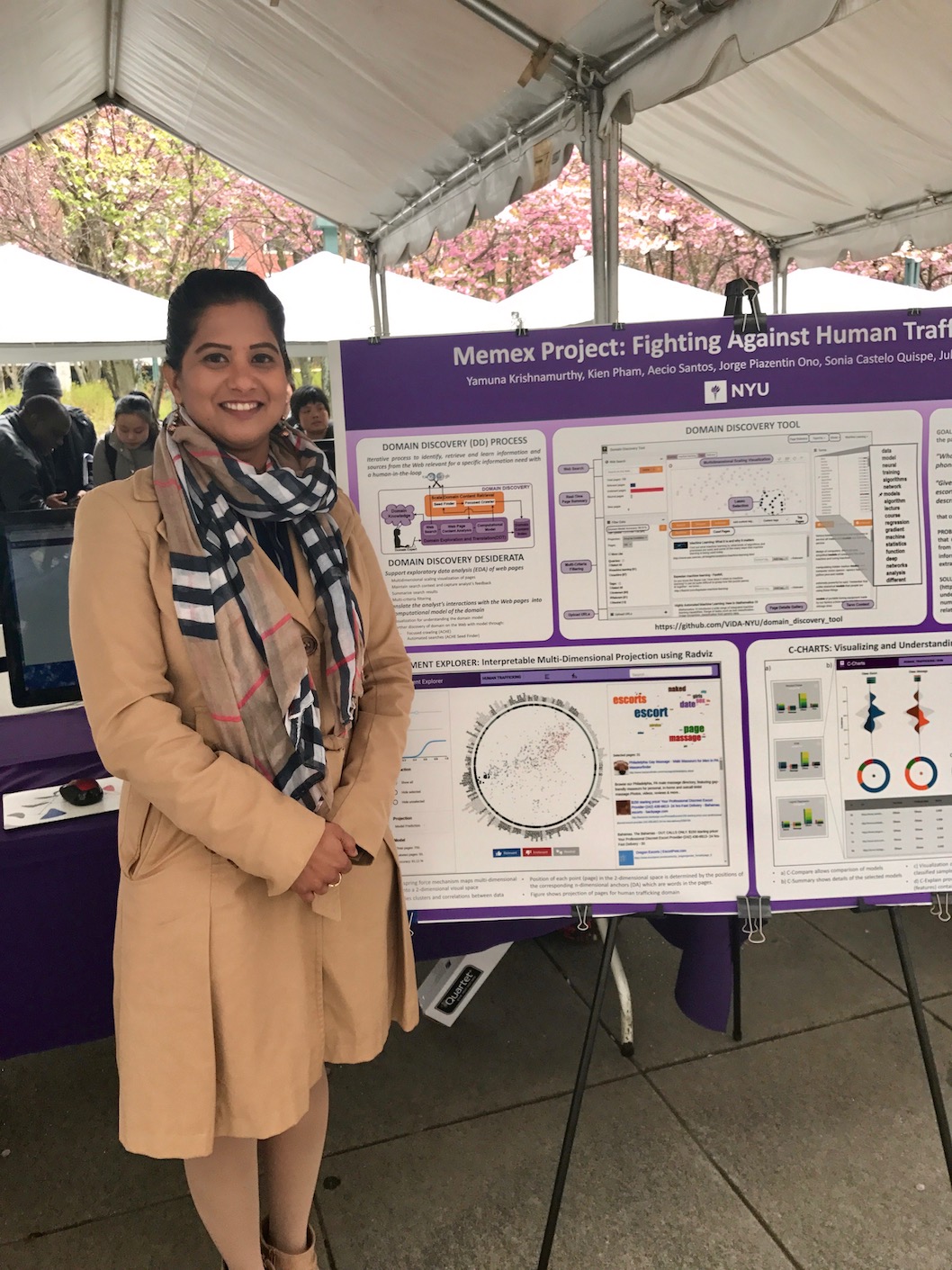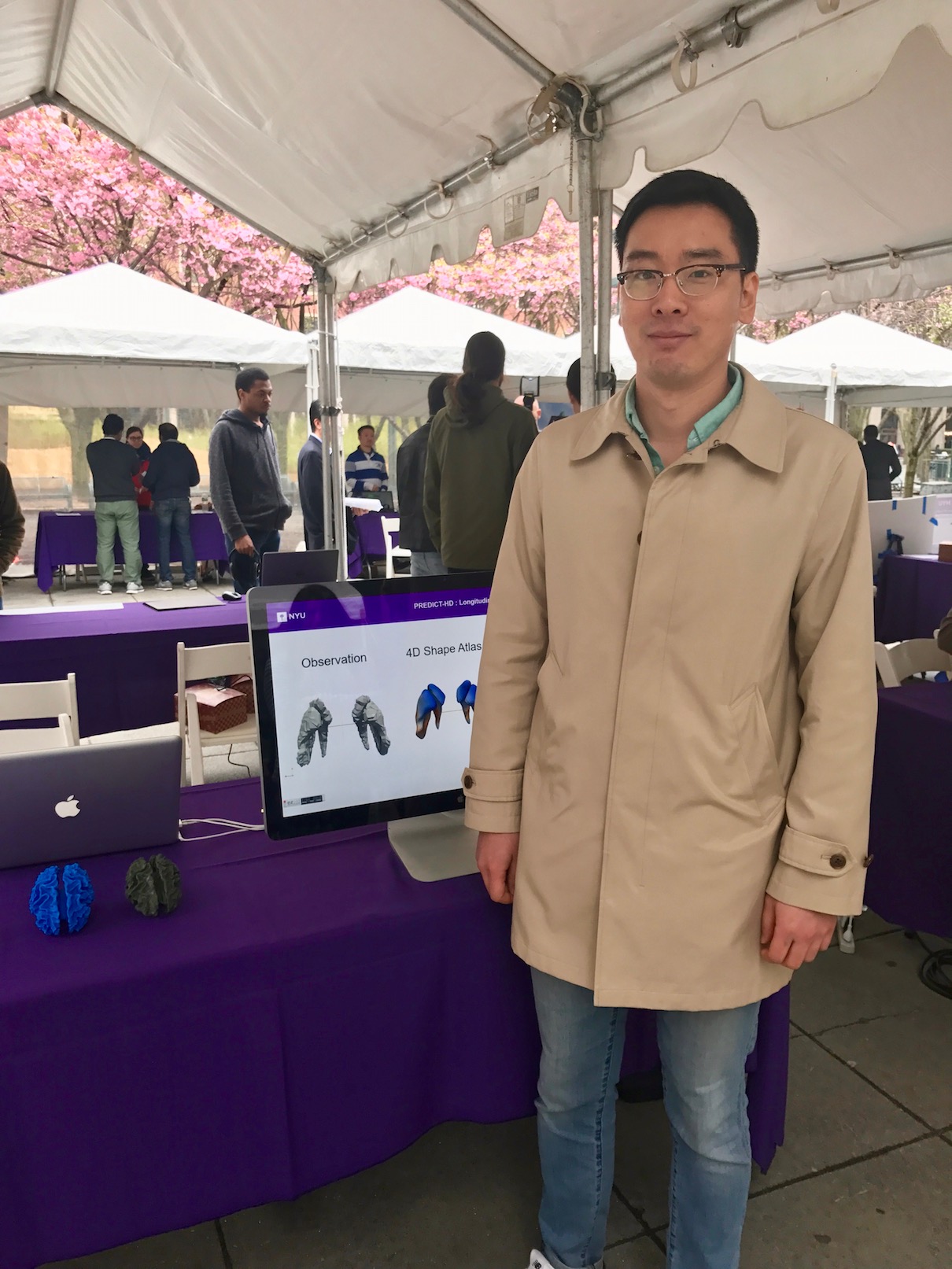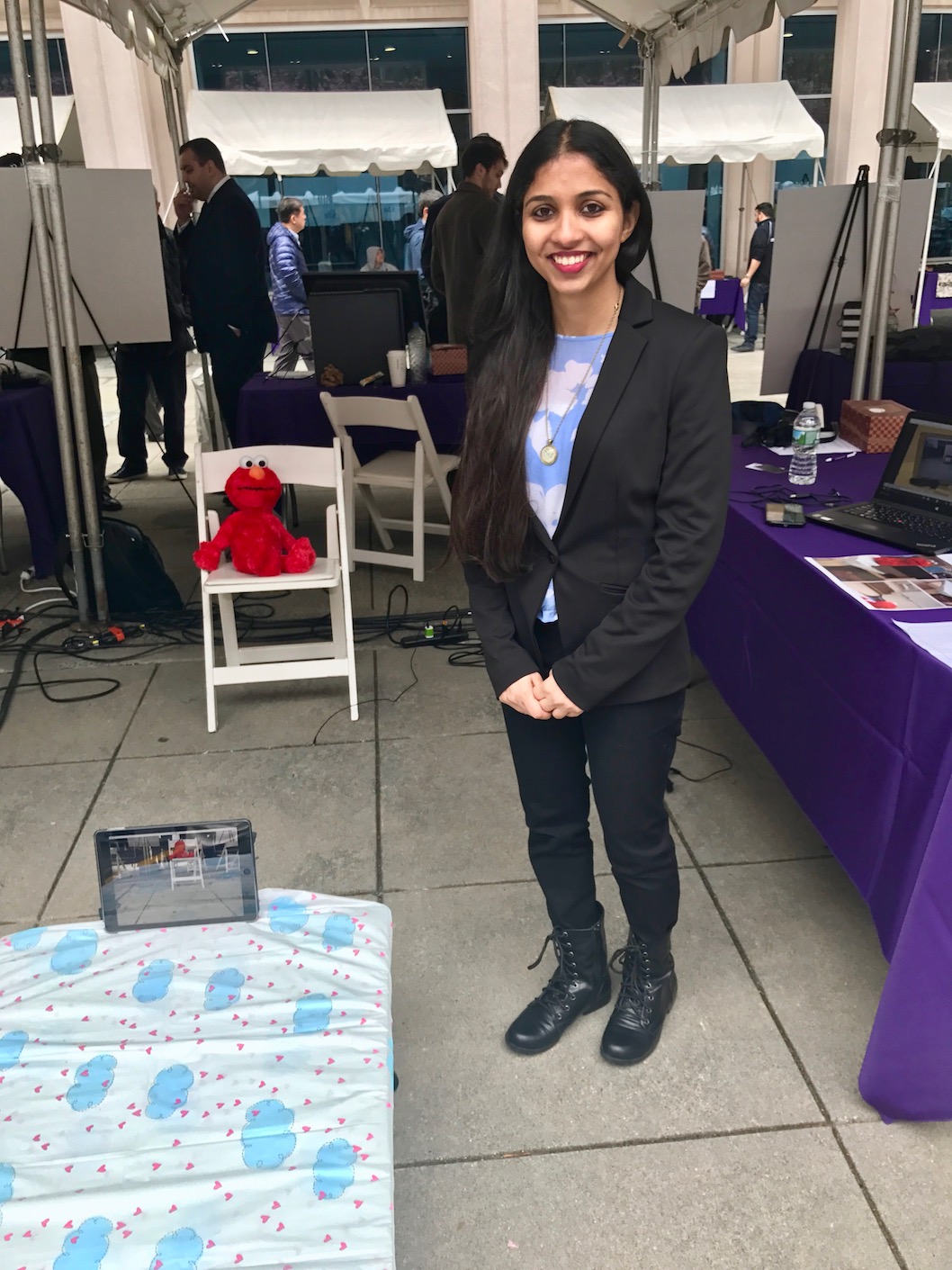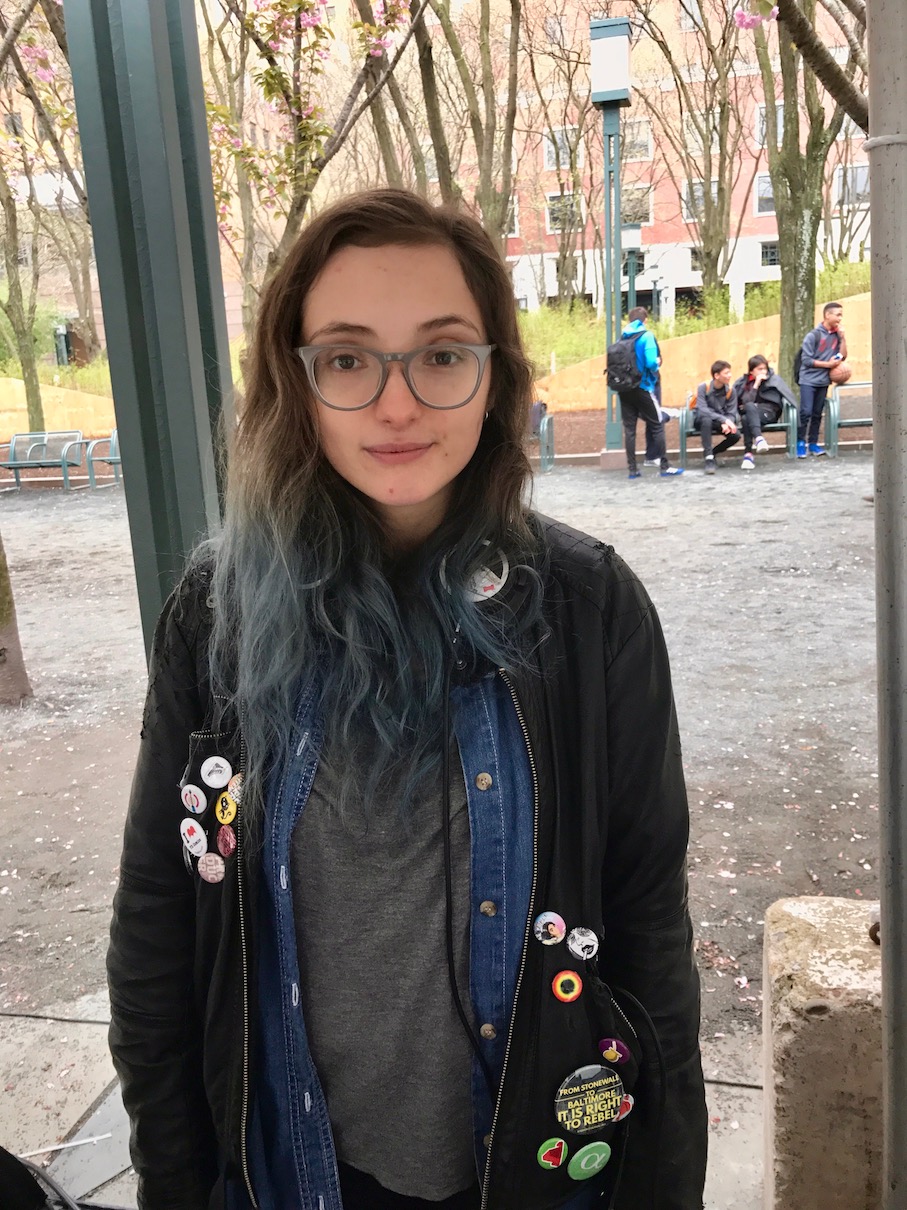Friday was an overcast, downright wintry day for late April. But that didn’t stop a throng of schoolchildren from excitedly skipping back and forth between the tents perched upon MetroTech Commons.
The occasion: NYU Tandon’s Research Expo, which showcased projects from the school’s faculty as well as undergraduate and graduate students.
- A rover to mine the surface of Mars?
- A tool to predict the likelihood of a child developing autism?
- A machine-learning platform to combat human trafficking?
Check, check and check. The expo also featured demonstrations and projects specifically developed for local K-12 students — hence the significant number of grade-schoolers in attendance.
The annual event, now in its fifth year, is designed to bridge the gap between researchers hunkered down in the lab and the general public, aerospace and mechanical engineering professor Vikram Kapila, who organized the expo, told Technical.ly. For starters, our tax dollars fund a substantial portion of that work, and it’s good to know how they’re making an impact. More significant, he said, is the opportunity to spread scientific literacy while promoting the school’s work — giving students and faculty a shot at becoming Bill Nye and Neil deGrasse Tyson for a day, at least, within the Brooklyn community.
“It’s imperative for us to come out of the lab,” Kapila said.
The expo doubled as a competition among the some 70 projects on display. A panel of judges, including several of NYU’s faculty, selected three of them as winners. We present them below, plus a few others that caught our eye.
The Winners

Yamuna Krishnamurthy, a research associate in computer science, won third place for a machine-learning system that she is helping to develop as part of DARPA’s Memex project, which is devoted to creating better tools for online search. That includes crawling what’s known as the “dark web,” or hidden content that can only be accessed through specific networks, such as Tor. Krishnamurthy’s project involves a machine-learning tool that detects web pages with similar content, so that users can quickly narrow their search when investigating, say, child pornography rings.

Roozbeh Soleymani, a doctoral student in electrical engineering, won second place for his app Bab.El, on which he collaborated with two NYU faculty members. The app, which is not yet available publicly, eliminates what’s known as babble noise: unintelligible background speech that can make it difficult to decipher the main conversation. That’s especially a challenge for people who have cochlear implants, devices that restore hearing to deaf individuals. Bab.El works in real time to reduce interfering babble noise on phone calls, as Soleymani demonstrated using a noise generator.

The expo’s grand prize went to a quite momentous project in the world of neuroscience. Sungmin Hong’s research may one day enable doctors to diagnose and begin treating autism in infants as young as six months old. Hong, a doctoral student in computer science and engineering, is collaborating with researchers from McGill University, UNC School of Medicine and the University of Iowa to develop a model that forecasts brain shape and growth based upon initial scans. Hong and his collaborators are also working on applications of the technology for Huntington’s disease.
And Two Others That Caught Our Eye

Meet the Tot-Bot, the invention of Tanaya Bhave, a master’s student in mechatronics and robotics. The Tot-Bot is a wheeled device that is steered via touchscreen: tap where you want to go, and it takes you there. It’s designed for young children with mobility impairments. For them, operating a standard wheelchair can be a difficult task, since they’re just learning the process of navigating from point A to point B. As a result, Bhave said, their development — both physical and mental — is often stunted. Her hope, she says, is that devices like the Tot-Bot could fix that.

Indira Ardolic, a senior in Tandon’s Integrated Digital Media program, is developing a virtual-reality experience called Requeerium. Requeerium explores queer identity through abstract images paired with spoken narratives, which Ardolic gathered through interviews. Ardolic, who identifies as queer, initially devised the project as a one-time installation but is converting it into a virtual-reality concept in order to expand its reach. (You can check out video of the original installation here.)







